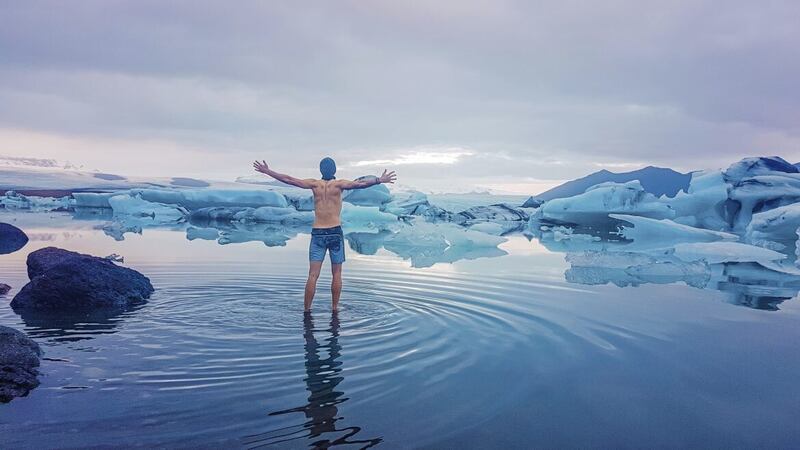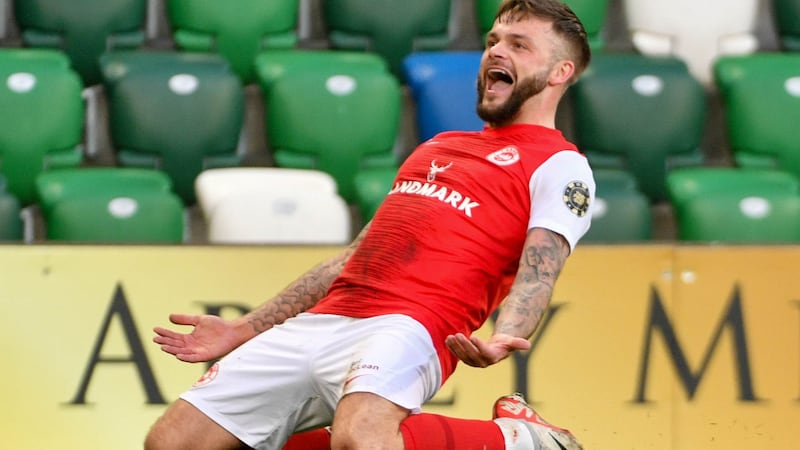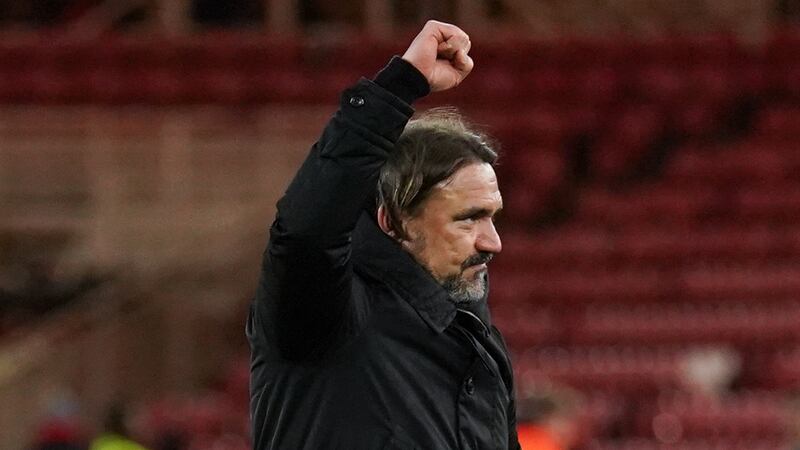WHEN the World Cups isn’t on TV these days (which isn’t often) I have started to watch a series called Limitless with Chris Hemsworth. The basic concept is that Chris is tasked with pushing both his physical and mental capabilities to the limit to prove what the human body and mind can achieve.
Chris Hemsworth is an Australian actor probably best known as Thor in the Marvel movies. He is currently taking a break from acting as he has discovered that he is at risk of developing Alzheimer’s disease.
He is very interested in health and fitness and throughout the series, is being trained by various professionals how to cope in certain situations and how so many of the challenges he faces are equally as mentally straining as they are physically.
The episode which particularly struck a chord with me was when he had to swim 250 yards through the Arctic Sea in ordinary swim shorts. The physical preparation for the swim involved a lot of hot and cold therapies.
This is something I have been trying to practice myself (albeit the Irish Sea doesn’t quite have the same sting as I would imagine the Arctic does). I have been training myself to do some sea swimming after a run or before an infrared sauna. I haven’t determined yet whether I prefer to go from hot to cold or cold to hot but either way the benefits mentally are clear, notwithstanding the physical benefits.
I am still doing my research and trying to educate myself on the physical benefits of hot and cold therapies but for stress relief and resetting I have to say I would highly recommend. Wellness clinics are popping up now, teaching us how we can incorporate simple practices into our daily routine or into our training and recovery. Clinics such as House of Middleton in Newcastle have a range of therapies and services which all promote both physical and mental wellness. More and more people are learning about the benefits especially for inflammatory conditions such as arthritis or muscular tensions.
We are lagging behind other countries in our knowledge, but the more we research and learn then the more commonplace these practices will become. I understand that infrared saunas and holistic therapies can be expensive to use but we can start off with the basics - turning the shower as cold as possible for a blast of cold water after hot or having an ice-cold bath after a long run or cycle. The principles are the same and the benefits are still there. We are triggering our nervous system and teaching our bodies to react to shock and learning how to manage it more effectively.
As well as hot and cold therapies, a lot of the challenges Chris faces in the series require him to really zone into his breathing and control his breathwork. This is another area of wellness and recovery that I am keen to learn more about. I am far from the most flexible person (my hamstrings have seen better days) but I like to do some yoga for the breathing and relaxation benefits.
When we are faced with uncomfortable situations, it is normal that our breathing becomes more rapid. Being able to manage and control this, to regulate our oxygen intake has benefits for all walks of life, school or work stress, travelling, training, competing.
Again, it is something that I am only beginning to learn about, but I can already see how being able to train ourselves to take control our body’s natural reactive systems could have huge benefits for our long-term health.
The series touches on the science behind how our bodies react and how we naturally trigger a fight or flight response to shock or trauma. It is very interesting to learn how our systems instantly change and adapt to help us survive through these situations and also how what we eat and how we train (both physically and mentally) can have a long-term effect on these systems.
We often hear the phrase ‘mind over matter’ and while quite often it is used flippantly, the more I learn the more I have come to realise that even the most physical of challenges cannot be completed without mental preparation and resilience.
In the series Chris learns about positive self-talk and repetition of positive affirmations as a distraction from physical strain. During the swim noted above, when his body starts to shut down with the cold, he has to find the mental strength to override this pain and get the challenge completed. There are times that it can be difficult to watch, and it is clearly dramatised for tv but there are many things to be learnt from it.
The aim of all these holistic therapies is to attempt to realign our ‘health-span’ to our lifespan.
Society is aging, we are living longer than ever so if we can remain in good health for as long as possible then surely that is worth putting in the groundwork now to benefit us in the future.
Getting ourselves back to basics and doing simple things correctly will reap rewards for us if we are lucky enough to make it to old age. I know for me personally, if being able better manage my reactive nervous system and reactive breathing helps me to continue with training in some form for years to come then I am willing to learn more about it all.








